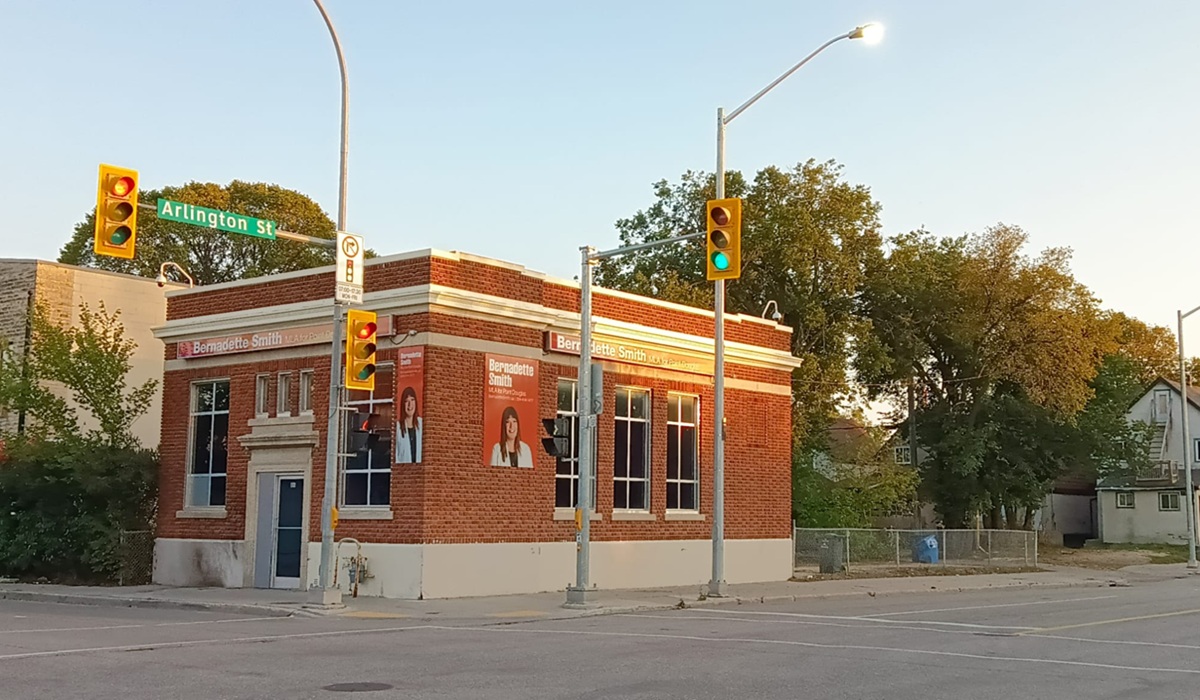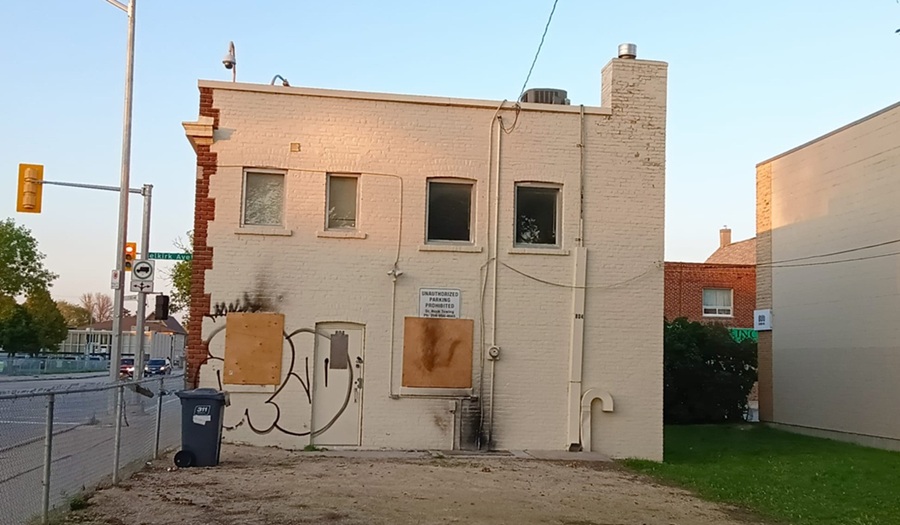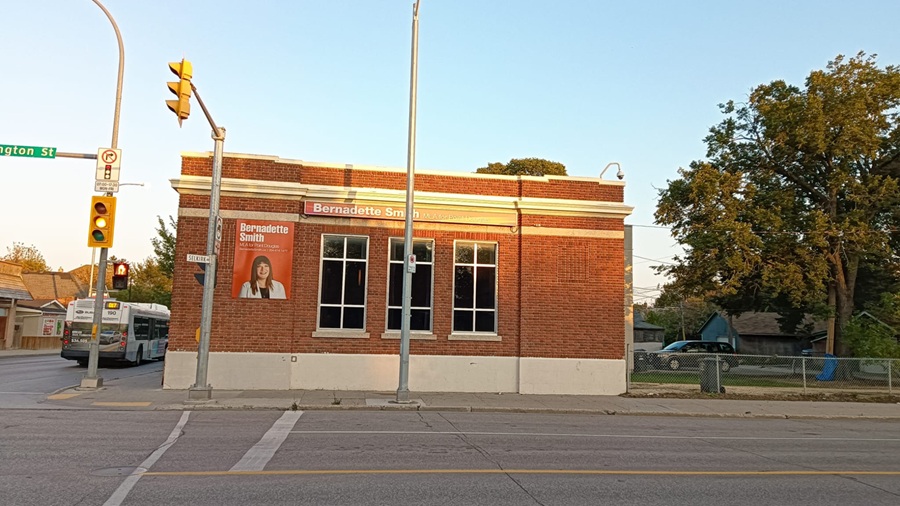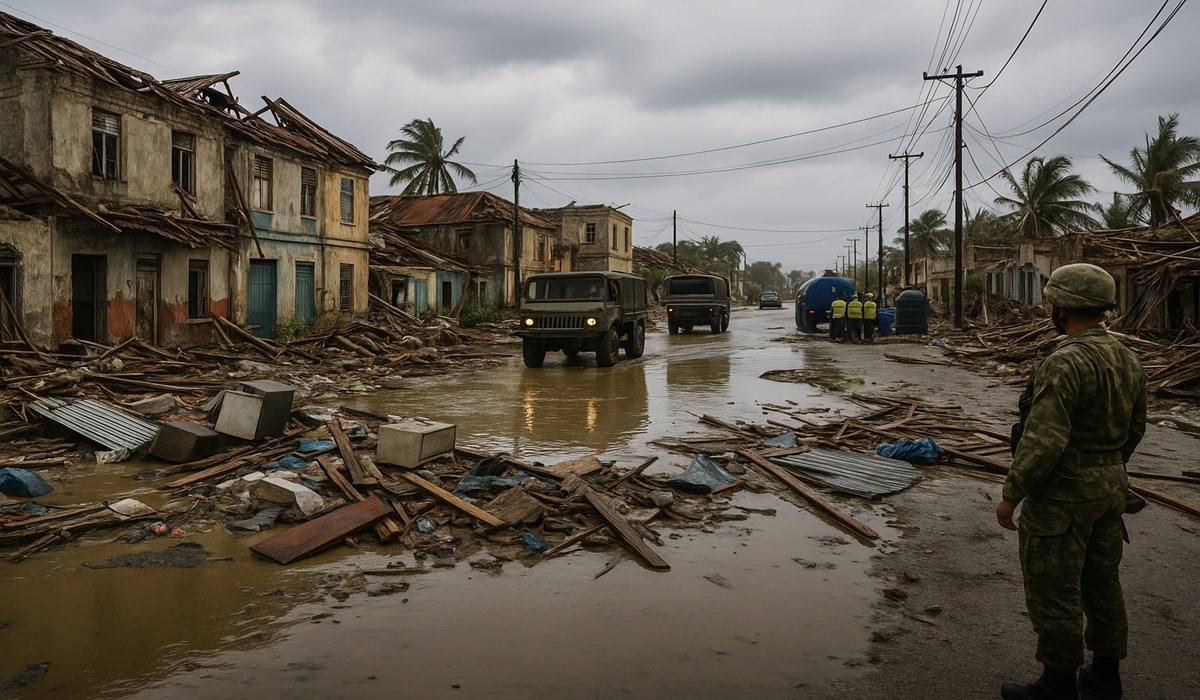Shattered Glass and Shattered Trust: The Crisis of Representation In Winnipeg’s North
- TDS News
- Breaking News
- September 24, 2025

By Donovan Martin Sr, Editor in Chief
Representation in politics is not about symbols, it’s about showing up. For the people of Winnipeg’s North End, one of the most economically challenged communities in the province, the election of Bernadette Smith was supposed to mean just that — visible, vocal leadership that connected government to the grassroots. Her appointment as Manitoba’s first Métis woman cabinet minister was seen as historic. Yet what has followed in recent months has left her constituents questioning whether they are truly being represented at all.
Smith’s constituency office has become a symbol of absence rather than engagement. Windows repeatedly smashed, doors destroyed, acts of arson — all culminating in reinforced panels now shielding what should have been an open and accessible office for the community. More recently, Nahanni Fontaine’s office was vandalized as well, prompting her to condemn the attacks and point out that two women were now targets.
Let us be unequivocally clear: violence, vandalism, and arson are never acceptable. They are never justified. There is no room for such acts in any form of politics, public discourse, or disagreements. It does not matter what party you support, whether you agree or disagree with your representative, or how strongly you may feel about government decisions — there is no justification for attacks on elected officials or their offices. Full stop.
But condemning violence cannot be the end of the conversation. Leadership is measured in moments of crisis, and what has been missing here is leadership. Smith’s press office issued only a short boiler-room statement, in response to a media inquiry, brushing aside multiple questions about the vandalism of her constituency office. Since then, she herself has declined, on more than one occasion, to address the matter directly. No town halls, no press availability, no acknowledgment of the concerns her constituents continue to raise. For a minister elected with the promise of being outspoken and accessible, this silence feels like abandonment. Constituents have turned to social media in frustration, asking why their elected voice has gone missing.

The argument that Smith is being targeted solely because of her identity as a Métis woman does not withstand scrutiny. Manitoba has a history of electing Indigenous and women representatives. Kevin Chief, her predecessor in the same constituency office, was a respected First Nations cabinet minister. He served during a period of high crime in Winnipeg but never faced vandalism of this kind. Premier Wab Kinew himself is Indigenous, and the NDP caucus includes several women. This is not about identity. It is about the vacuum left when a representative does not engage with her community in the midst of crisis.
What stings most is that the NDP government increasingly looks no different from the Progressive Conservatives they replaced. Specifically, when it comes to communication and responding to media inquiries, the NDP are now resembling the PCs. Despite promising transparency, this government has been equally selective in access, quick to avoid direct answers, and unwilling to face tough questions. For a party that built its brand on accusing the PCs of stonewalling, the resemblance is glaring and deeply disappointing.
It could be that Smith has been advised to avoid public comment while police and the Sergeant-at-Arms investigate. But there is a vast difference between avoiding the specifics of an active investigation and refusing to acknowledge the pain and concern of your constituents. Leaders can condemn violence — and should do so loudly and consistently — without jeopardizing investigations. They can show empathy, reassure residents, and promise to advocate. That hasn’t happened here. Instead, silence has been allowed to deepen frustration and mistrust.
This silence is all the more damaging in the broader context of a government already showing strain. The sudden removal of MLA Mark Wasyliw from caucus, now sitting as an independent, exposed fractures within the NDP. His allegation that Premier Kinew is a “bully” is an insight into what happens behind closed doors and only reinforces a growing perception of his leadership style. Increasingly, Kinew is described as running a “tight ship” where dissent is tightly contained — a style some compare to Brian Pallister’s centralization of power. For now, the party line holds in public, but insiders quietly admit the strain is there.
This is a major test for the Premier. Kinew has publicly said he does not believe in cancel culture, stressing that people deserve second chances, as he himself has had. But this is not about cancel culture. This is about governing. It is about recognizing when the credibility of a government is being eroded, and when decisive changes are necessary to restore public confidence. Knowing when to act is not punishment — it is leadership.
Talks of a cabinet shuffle are already intensifying. According to sources, it could happen before or after the NDP’s convention on November 7–9, 2025, or at the latest before the legislature breaks in December. Cabinet shuffles are rarely signs of strength. They are acknowledgments that something isn’t working, resets meant to regain momentum and quiet dissent. With Smith under scrutiny and Health Minister Uzoma Asagwara facing sharp criticism from doctors and nurses over health care wait times and systemic pressures, the Premier may soon have no choice but to act. The NDP has other capable MLAs ready to take on larger roles, and a shuffle would be the clearest sign that Kinew is listening.

Meanwhile, the opposition is still regrouping. The Progressive Conservatives suffered a humiliating defeat in the last election and remain split. Their leadership race was narrow and divisive, and Obby Khan’s victory reflected a fractured party. Critics describe him as transactional and one-dimensional, and while he brings energy and community connections, the PCs are still in rebuilding mode, struggling to find cohesion and direction. They are not yet a polished alternative government. Still, they stand to benefit from every misstep by the NDP. As for the Liberals, their presence in Manitoba politics has become negligible, to the point of irrelevance.
That leaves Manitobans facing a choice between a government that looks increasingly like the one they voted out and an opposition still searching for its footing. Neither option inspires full confidence, but the risk for the NDP is greater. They were swept into power on the promise of change. If the public concludes that nothing has changed, the next election will not be decided by an orange wave but by disillusionment and disengagement.
For the North End, this disappointment is personal. Residents expected Bernadette Smith to be present, to speak, to lead. Instead, they see boarded windows and unanswered questions. The Premier may stand by her in the name of symbolic representation, but symbols do not cast ballots. People do. And people remember who showed up when their community was hurting.
Violence and vandalism must be condemned without hesitation — and they are here. They are wrong in every circumstance, and they solve nothing. But leadership must go beyond condemnation. It must be active, visible, and accountable. Right now, Manitobans are waiting for that kind of leadership.
The broken windows of Bernadette Smith’s office are more than vandalism. They are a reflection of the cracks running through her government. If those cracks are not addressed with courage and honesty, they will spread. Representation was the promise. Silence is the reality. And silence is not leadership.








